Principles of the Action programme
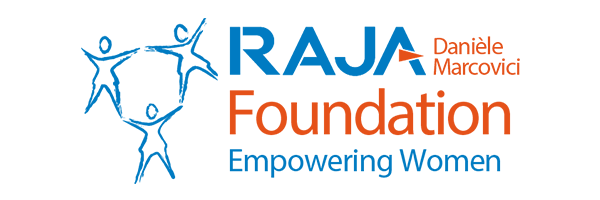
Foundation supports 12 projects through the action programme:
Women & Environment

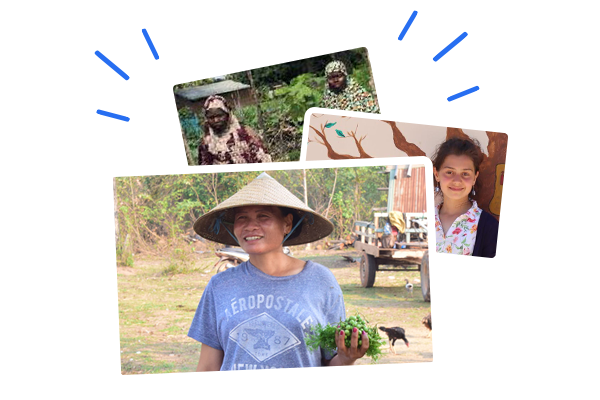
About the Action programme
Established in 2006, the RAJA-Danièle Marcovici Foundation supports projects improving the living conditions of women all over the world. The Foundation has aided hundreds of associations benefiting tens of thousands of women.
Each time you purchase 1 pack of our eco-responsible partnership products, £1 is donated to the Foundation, which allocates the funds collected to the nominated projects.
In 8 years, €3.5 million has been collected and donated across the RAJA group, helping to support 114 projects for the direct benefit of more than 15,000 women in Africa, Latin America, Asia and Europe.
In 2023, nearly €500,000 was collected and donated by RAJA France and the European countries partipating in the Action Programme.
Projects Currently Supported
Each year, the RAJA-Danièle Marcovici Foundation selects associative projects acting in favour of women's actions for the environment. Here are the projects supported until 31/12/2024.
Association Humanitaire pour l’Afrique
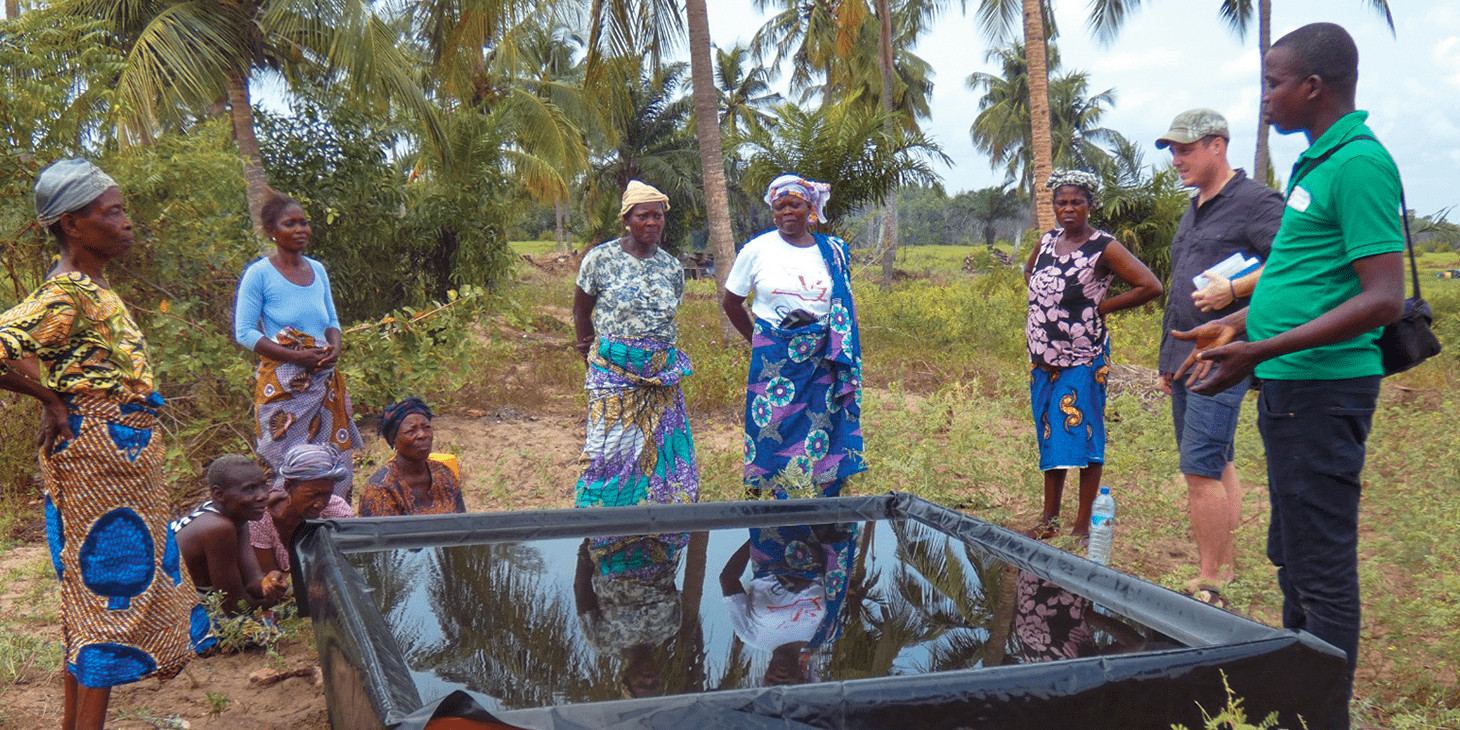
Through the use of solar tarpaulins, 40 women salt producers are trained in more eco-responsible production practices
In Benin, the women of the coastal villages of the Ouidah commune have been producing salt for generations. Between January and April, the marshy ground dries out and becomes ideal for creating brine. Traditionally, the women use mangrove wood to boil the brine until the water evaporates, leaving only the salt behind. This step is particularly harmful to their health because of the fumes that are released and threatening to the biodiversity of the region because of the intensive cutting of the mangrove. In order to preserve the riverbanks, the Beninese authorities have banned the cutting of mangroves, thus impacting on the work of the salt producers, who have either stopped their activity or chosen to source their wood from other villages. The Humanitarian Association for Africa (AHPA), which is particularly involved in this region of Benin, wanted to help these salt producers change their production practices to make them more environmentally friendly by using solar panels to evaporate the brine water. An initial experiment in this area took place in 2002, but failed to convince the salt producers. In partnership with CRIPADD, a Beninese NGO, and the Association of Ponds and Marshes of l'le de Ré (AEMA), an expert in salt farming, AHPA has relaunched the experiment with encouraging initial results involving around ten women, before extending it to other women salt farmers. The technique used is more respectful of their health and biodiversity.
Agronomes et Vétérinaires Sans Frontières
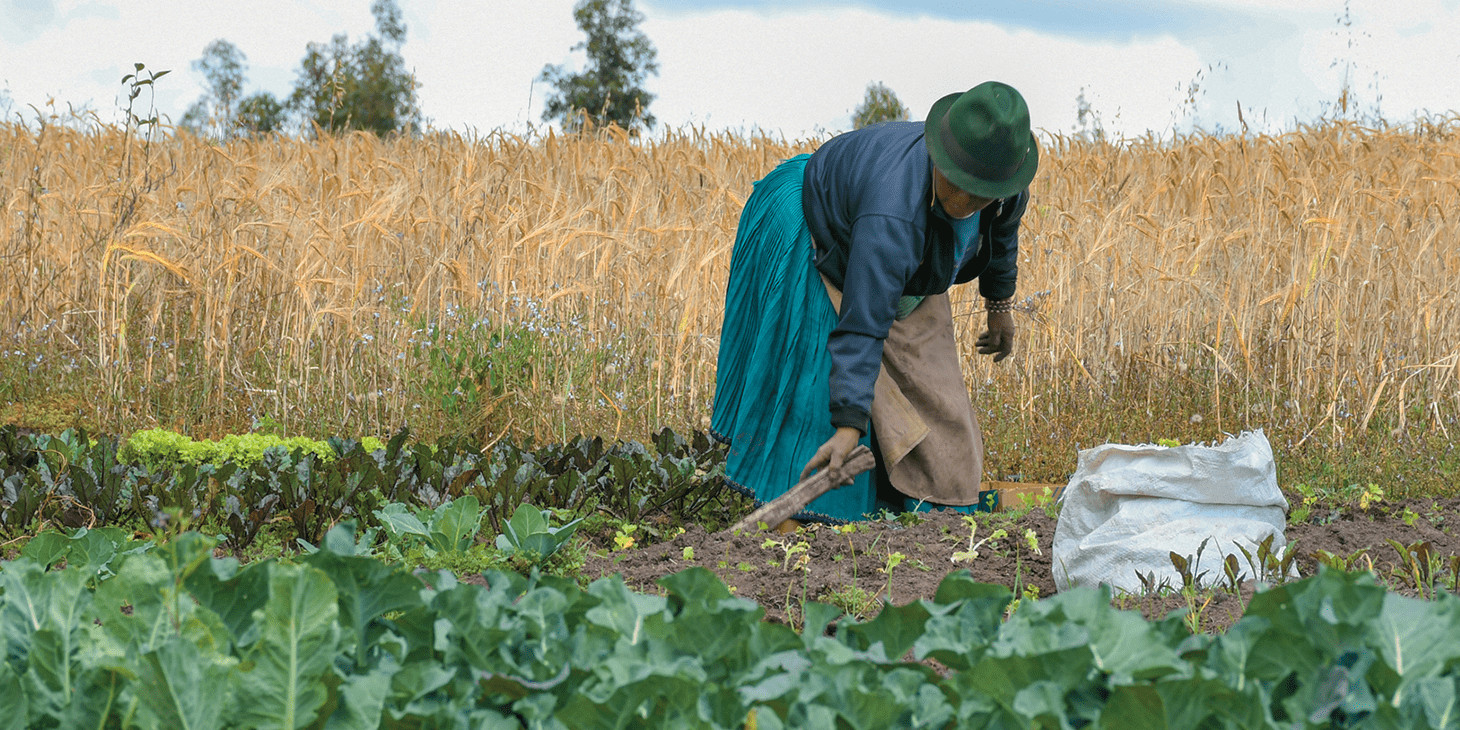
To strengthen the leadership skills of indigenous women and small farmers, in turn conducting political advocacy in defence of the Páramos; high-altitude lands with vital ecological functions for production.
In 2008, Ecuador became the first country in the world to recognise the rights of nature in its constitution. This decision gave them the highest degree of protection recognised in Ecuadorian law. In practice, however, these rights are not respected. The Kichwa people are opposed to the human activities that are destroying their land through economic extraction: deforestation, expansionist agriculture, mining, hydroelectric power stations, etc. This indigenous population lives at an altitude of over 3,000 metres in the Sierra (Andes) in the heart of the Páramos; an ecosystem with vital ecological functions. They are both a source of fresh water and a carbon sink. To support the defence of the rights of the Páramos, Agronomists and Veterinarians Without Borders (AVSF) has joined forces with ECUARUNARI, the confederation of the Kichwa people in Ecuador, to strengthen the indigenous movement in the Sierra community. One of the aims of this collaboration is to strengthen the leadership skills of indigenous and rural women in order to carry out local and national political advocacy. The Dolores Cacuango school, which was set up in the 1990s and closed in 2010 due to a lack of funding, will be refurbished to welcome a group of women in 2023. The school bears the name of an influential indigenous woman leader, recognised as a pioneer in the fight for indigenous rights in Ecuador.
CARE France
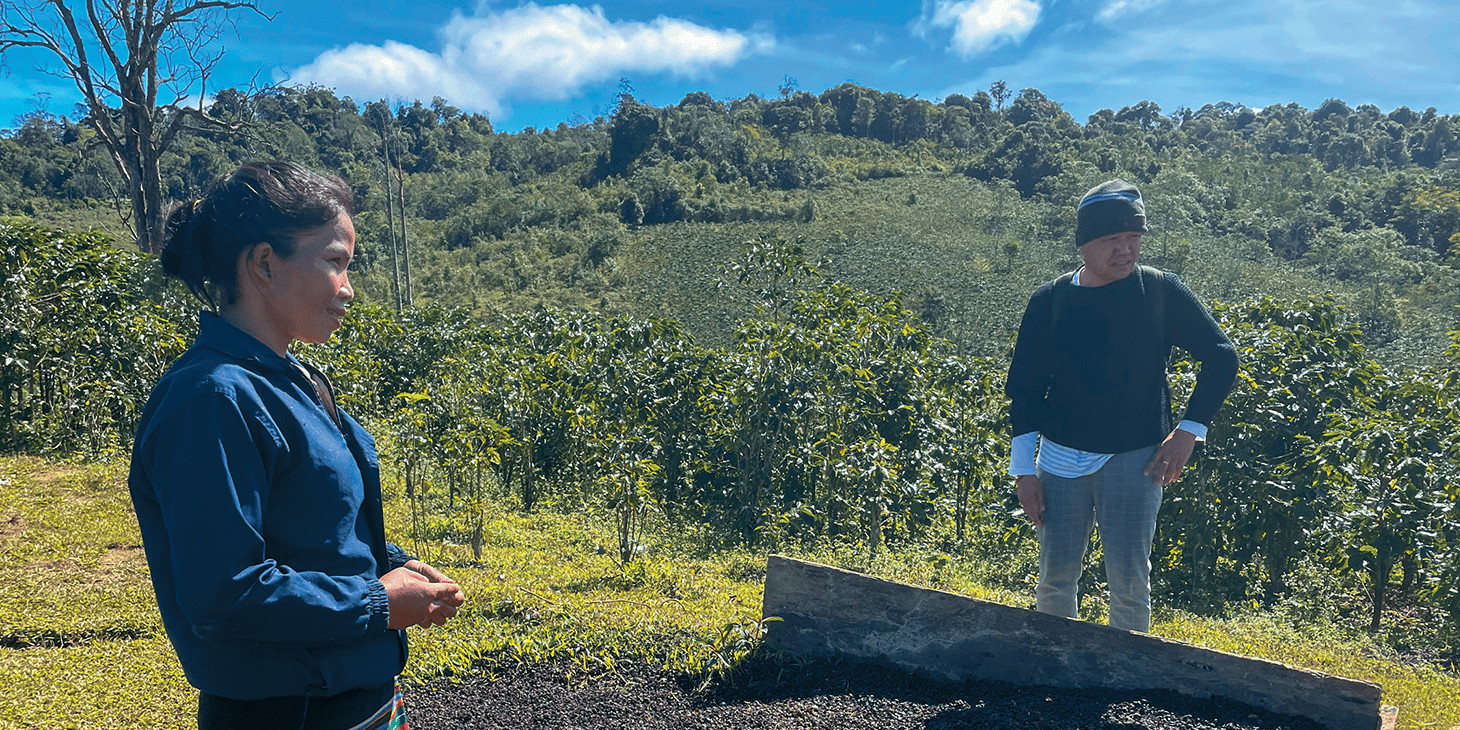
Helping women coffee growers to develop more environmentally-friendly practices and strengthen their leadership.
Coffee is one of the world's most widely consumed commodities: it is estimated that 25 million people worldwide grow coffee, many of them small-scale producers. Laos is the 3rd largest coffee producer in South-East Asia, providing employment for 40,000 families, ranging from large coffee traders and producers to smallholders on commercial plantations. Global warming is having a severe impact on the country's agriculture and economy (drought, floods, landslides). CARE France and CARE Laos are working in 10 villages in the Dakcheung region to help coffee growers develop a sustainable industry with low environmental impact. The focus of their work is on empowering women, who make up more than half of the farmers; yet are absent from decision-making circles, have less access to training opportunities and have lower incomes. They are less literate and therefore do not manage sales or administration. The project aims to strengthen the roles and leadership of women in coffee producer groups, raise community awareness of gender and climate issues, and lobby for the inclusion of gender considerations in Laos' coffee strategy. The Foundation RAJA Danièle Marcovici is contributing €25,000 to the co-financing of the project over 1 year (2024).
Chaussettes Solidaires
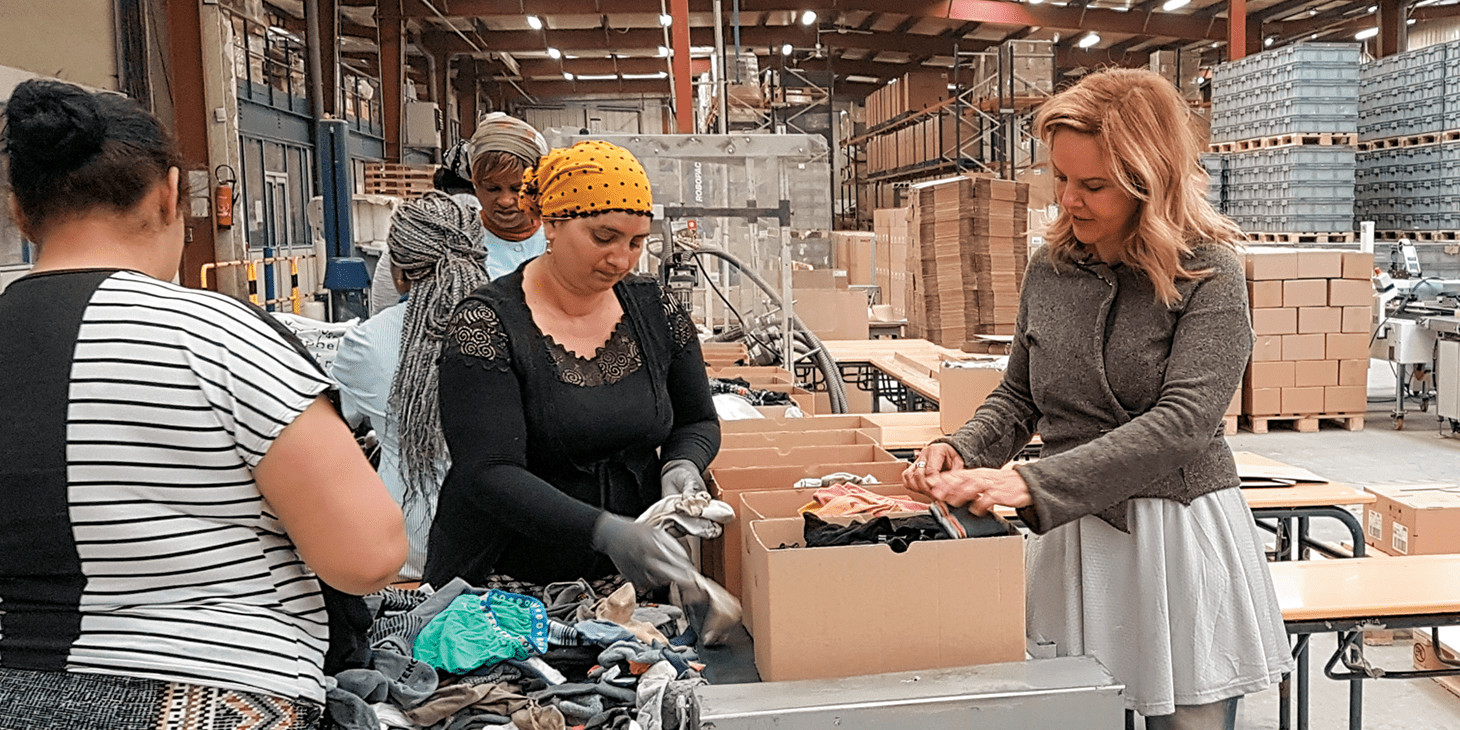
Offering clothing design workshops for disadvantaged women using recycled socks as part of events involving businesses and schools.
For the past 12 years, in the Goutte d'Or district of Paris, the Chaussettes Solidaires association has been offering women in precarious situations, particularly those living in emergency accommodation centres, workshops to create clothes from socks collected as part of events involving businesses and schools. A number of these women have expressed a desire to learn sewing as a trade, to help them out of their precarious situation for good. Training opportunities already exist on the market, but they are often spread out over a long period of time (once a week, for example), or are unsuitable for this type of audience (lack of follow-up and support for these people in difficulty). To meet their needs, the association is setting up short courses (6 months) that enable women to acquire technical skills and become familiar with the codes and behaviour expected in the job market.
Electriciens sans frontières
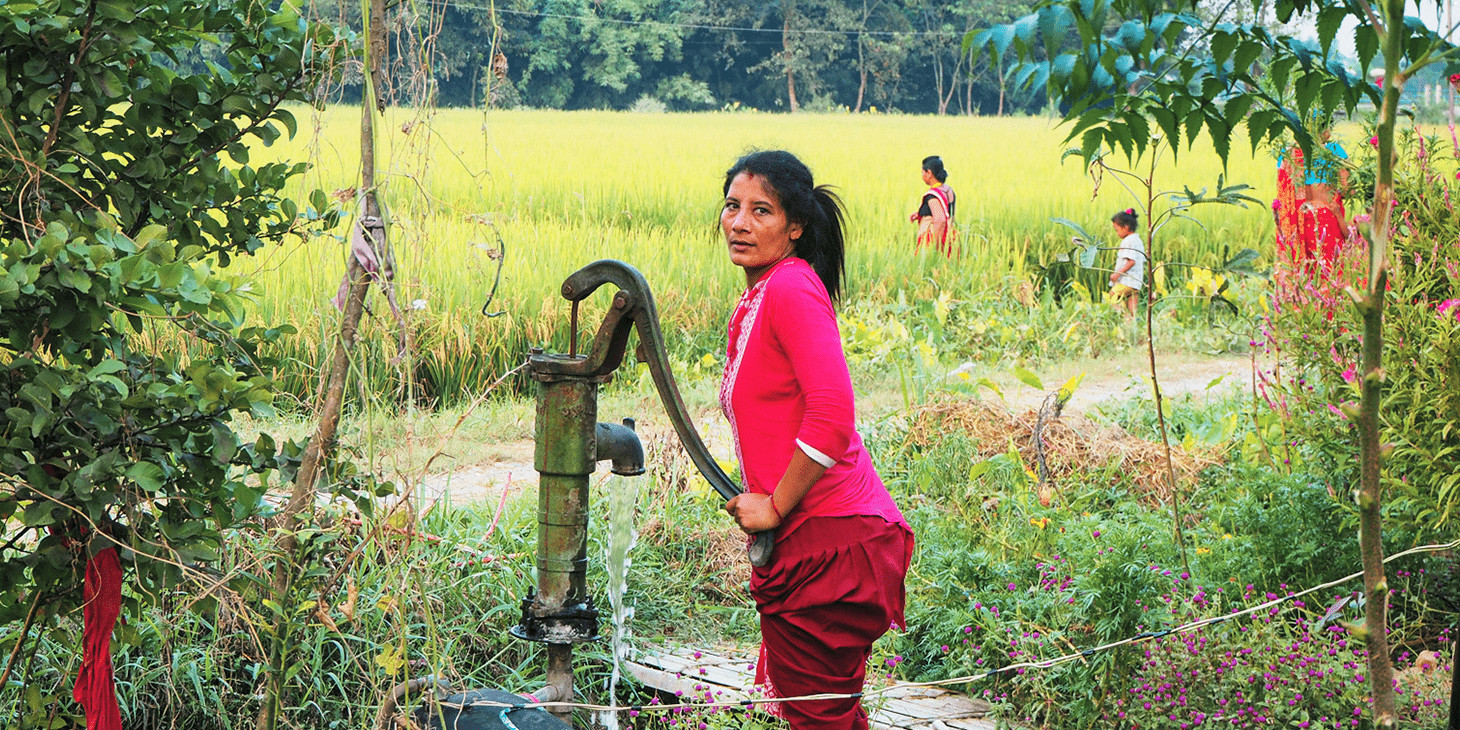
Promoting the independence of women entrepreneurs through the development of a new income-generating activity: the sale of a solar water pumping system for farmers.
In Nepal, during the dry season (November to March), farmers find it difficult to irrigate their fields. There are solutions, such as thermal pumps, but they consume a lot of energy and pollute enormously. Others, which are more manual, incur an additional constraint for women farmers, as they are the ones who draw the water. Electricians Without Borders wants to make a more accessible solar pumping solution so that farmers can produce more cleanly. The irrigation systems will be distributed by the local partner organisation Kalpavriksha (KGG), which runs a network of "women entrepreneurs" (known as Suryamukhis) for the distribution of hygiene products and household equipment in rural areas. The project also aims to empower these women entrepreneurs by training them to sell renewable technologies, an attractive growth sector. Nepalese women face considerable inequalities. They rarely own agricultural land, have a lower literacy rate than men and less access to training.
GreenNKool
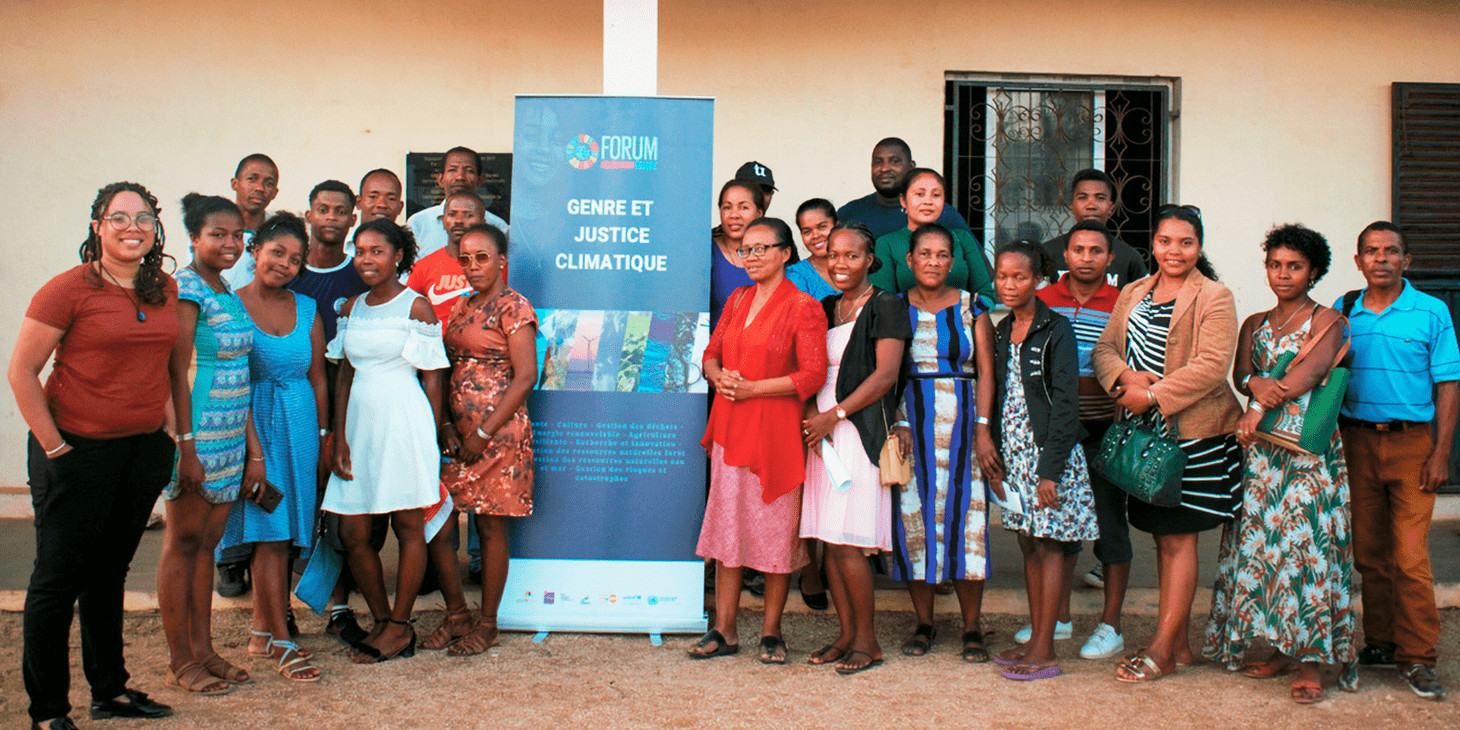
Improving the participation of women's organisations in preserving the environment while combating gender-based violence
Madagascar ranks 10th among the countries most vulnerable to climate change. With an average temperature rise of 0.7°C since 1960, the country has experienced prolonged droughts, frequent cyclones, and erratic rainfall. Around 90% of the population is directly dependent on agriculture, exposing millions to food insecurity. Furthermore, massive deforestation is exacerbating the effects of climate change, with a loss of forest cover of more than 40% between 1950 and 2010. The project is taking place in Ambovombe in the Androy region, one of the poorest (91% of the population live below the poverty line) and driest (more than 2 million people are threatened with starvation due to drought) in the country. The GreenNkool organisation aims to increase the involvement of women-led civil society organisations in protecting the environment while combating gender-based violence. This will be achieved through the creation of a low-tech research laboratory for water desalination and spirulina production, and the establishment of a resilient arboretum run by women's associations.
Habitat-Cité
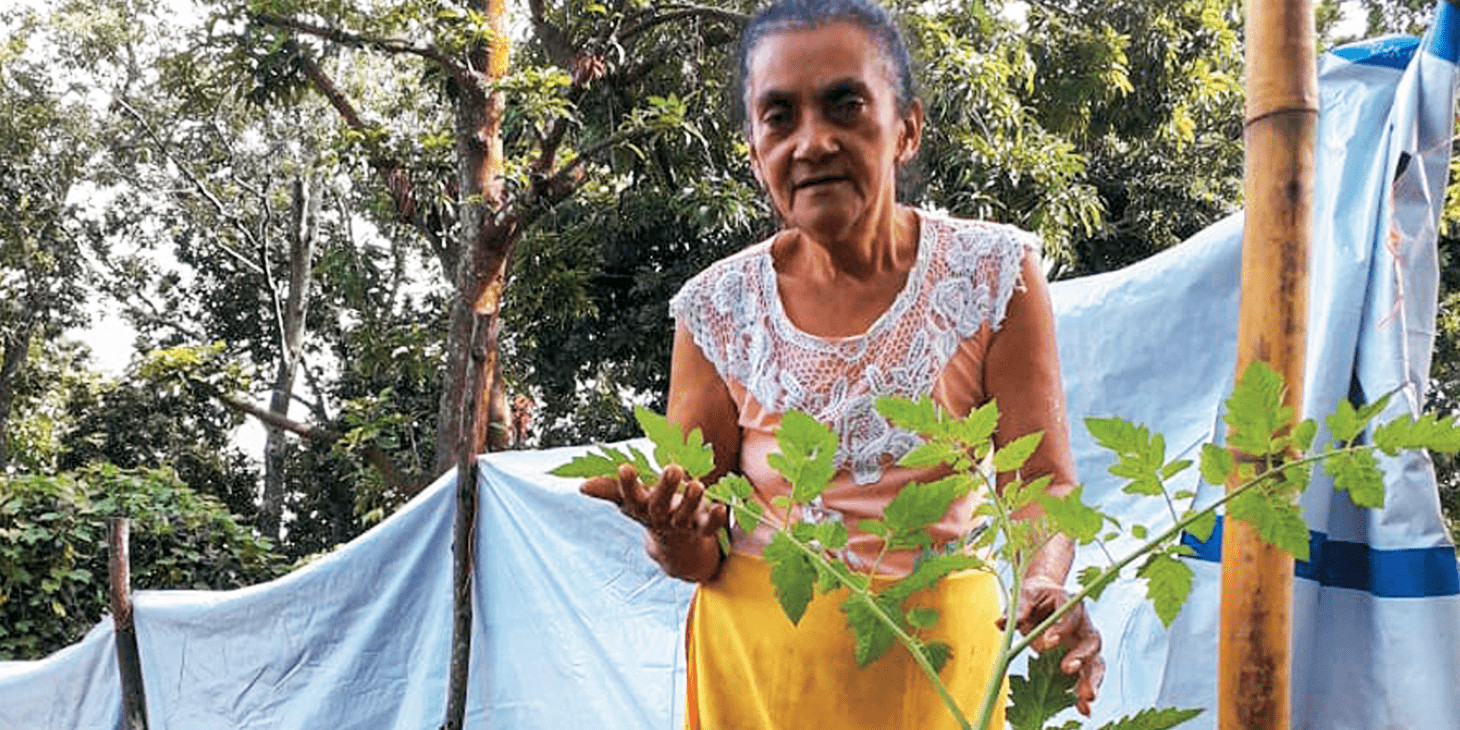
Promoting food security for rural families by enabling women to create their own edible forest of fruit trees and shrubs
In the Vallée de Jacmel et Bainet, a mountainous and inaccessible region in the south-east of Haiti, the inhabitants live mainly from agriculture, livestock farming and handicrafts. As a result of drought, deforestation and natural disasters, rural communities are faced with numerous difficulties affecting their harvests and living conditions. In response to these problems, Habitat-Cité and its partner OJUCAH have launched a project for the creation of edible forests by local women to combat deforestation and diversify food crops. The aim is to create a forest ecosystem where trees, climbing plants, vegetables, fruit trees and medicinal plants all grow together. Four women in particular are being supported by OJUCAH through training and personalised guidance in the creation of edible forests, so that they can then pass on their knowledge to other women in their community. Activities aimed at young girls are also planned to raise their awareness of environmental and gender issues.
Inti Energies Solidaires
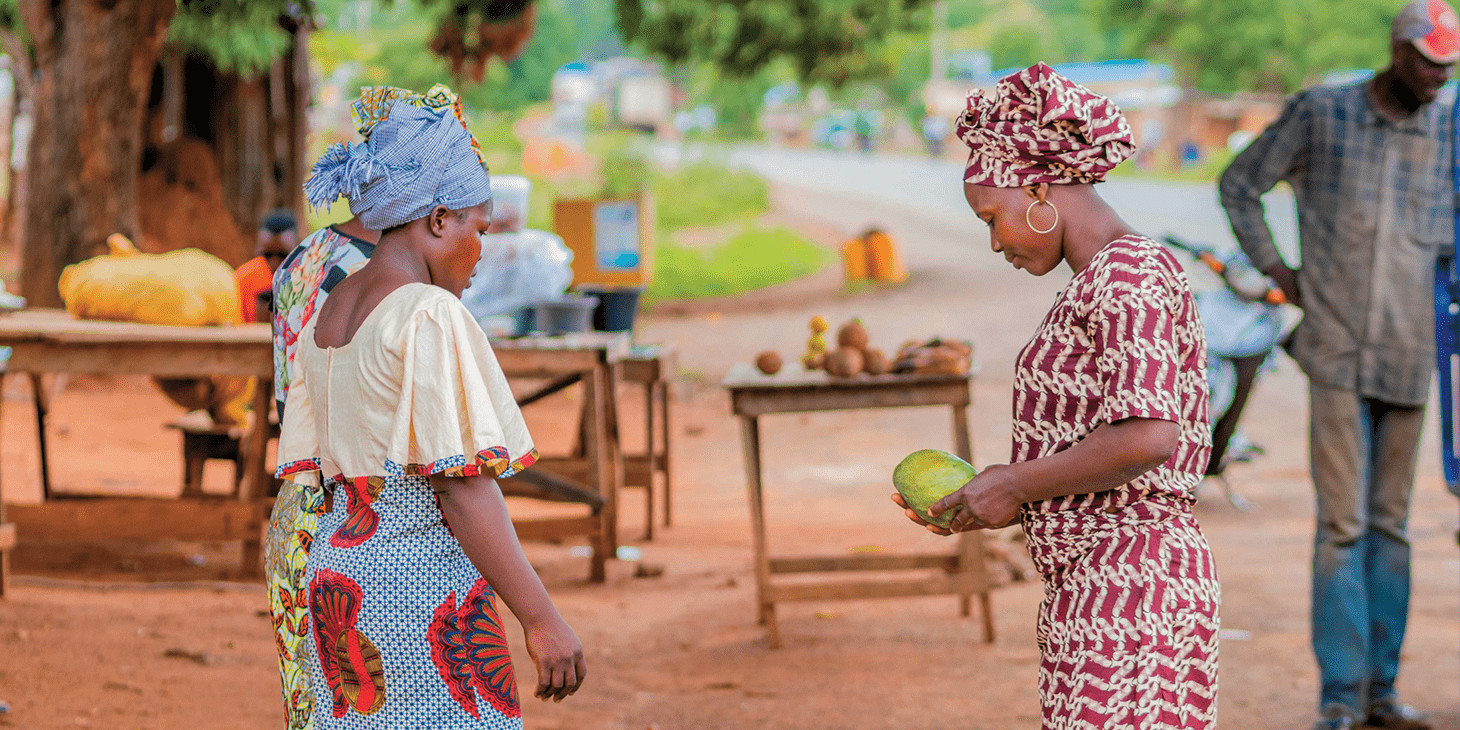
Improve women's resilience to climate change by offering them practical, eco-responsible solutions for their income-generating activities.
Atacora, in Benin, is a rural department with a particularly poor and vulnerable population. Farming activities are carried out by women, who transform fruit or vegetables into a marketable product (cassava flour, maize flour, dried mango, soya processing, etc.). Processing techniques are not optimised, which means that production is lost. In addition, the area is threatened by major deforestation, of which women are the first victims, as it is they who travel many kilometres each week to collect wood. The cooking equipment used in households or for income-generating activities consumes a lot of wood and is harmful to women's health. Wood resources are dwindling, forcing the women to travel further to collect wood. Inti Energies Solidaire, an association specialising in ecological cooking, wants to offer concrete, eco-responsible solutions to the women of the Atacora to help them adapt to climate change and improve their living conditions. With the help of the local Eco-Bénin association, they will develop and promote an ecological cooking solution for women and their families. Accompanied by the Youth Network for the Green Economy, they will work with women's groups to optimise their processing activities. Inti Energies Solidaires will itself be supported by the French association Support and Solidarity Group to ensure that gender is taken into account throughout the life cycle of the project.
La Voûte Nubienne
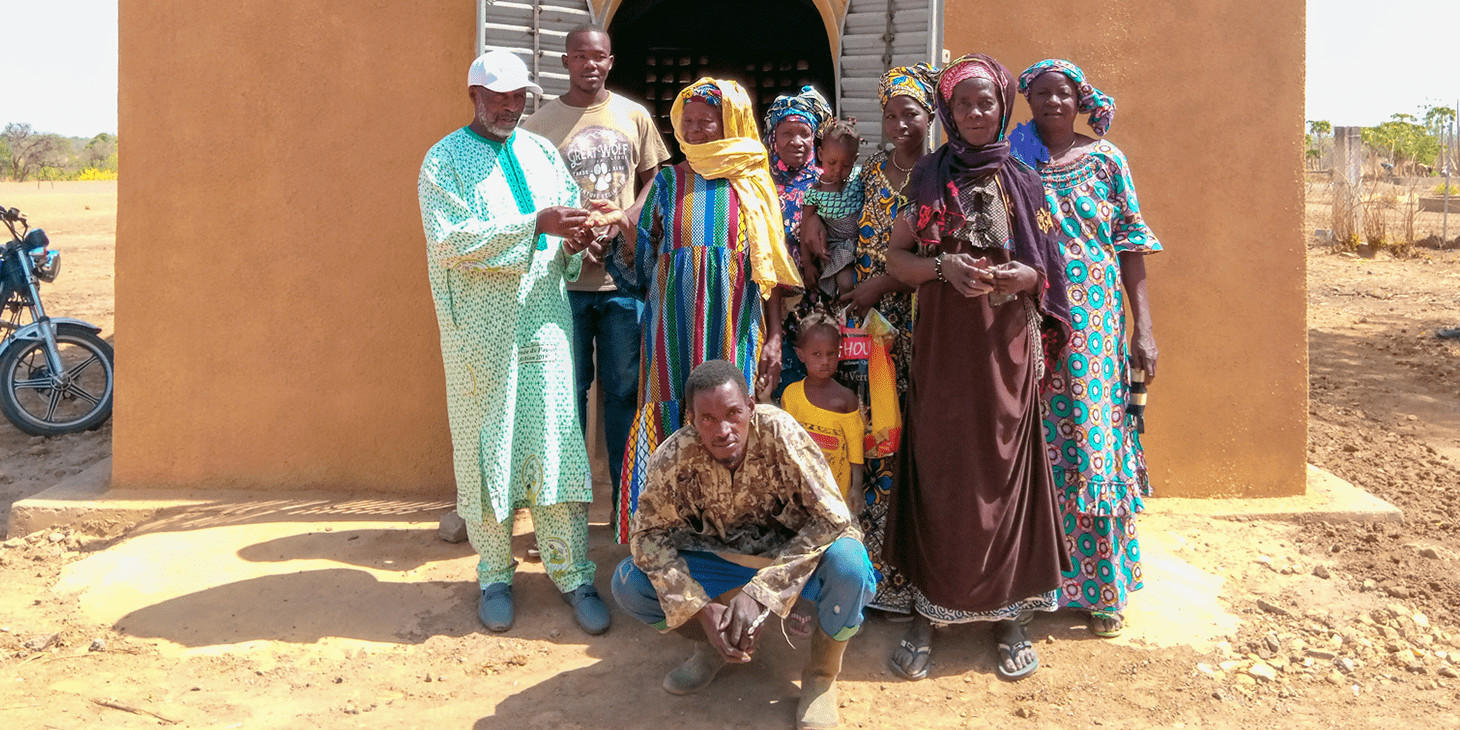
Building storage spaces using Nubian vaults, an ancestral technique that uses only locally available materials and enables the construction of decent, affordable and resilient houses in the Sahel, for women onion and shallot growers.
The agricultural sector is a major component of Burkina Faso's economy. It contributes 35% of the country's GDP and employs 82% of the working population. More than half of agricultural production depends on women, even though they own only 8% of the land. Climate change is having a negative impact on farmers' working conditions and production methods. The lack of suitable infrastructure to ensure that harvests are properly preserved is exacerbating these difficulties and exacerbating the precarious situation of people working in this sector. This is particularly true of the onion/shallot sector, which is essential in the Sahel. In response to this situation, the Voûte Nubienne Association (AVN), in partnership with the National Federation of Naam Groups (FNGN), will support a group of women onion and shallot growers by building a Nubian vault storage facility. This technique, which is over 3,000 years old, enables buildings to be constructed 100% from unbaked earth, a material that is widely available locally and has no carbon impact, replacing imported tin roofs with vaulted roofs made from unbaked earth bricks. The thickness of the rammed earth walls largely attenuates temperature variations inside the building, ensuring better conservation of the crops, more comfortable working conditions and better protection against the elements, unlike tin roofs which are often blown off by strong winds. Since these buildings are timber-free, no trees are cut down, helping to preserve the forest cover. The characteristics of the Nubian Vault technique make it a particularly suitable solution to the environmental and climatic challenges of this region. AVN and FNGN will also be working with women leaders from and representatives of women producers' groups to define and carry out national and international advocacy to ensure that the voices of Sahelian women are heard on the issues of adaptation and the right to decent housing for all.
Objectif France-Inde
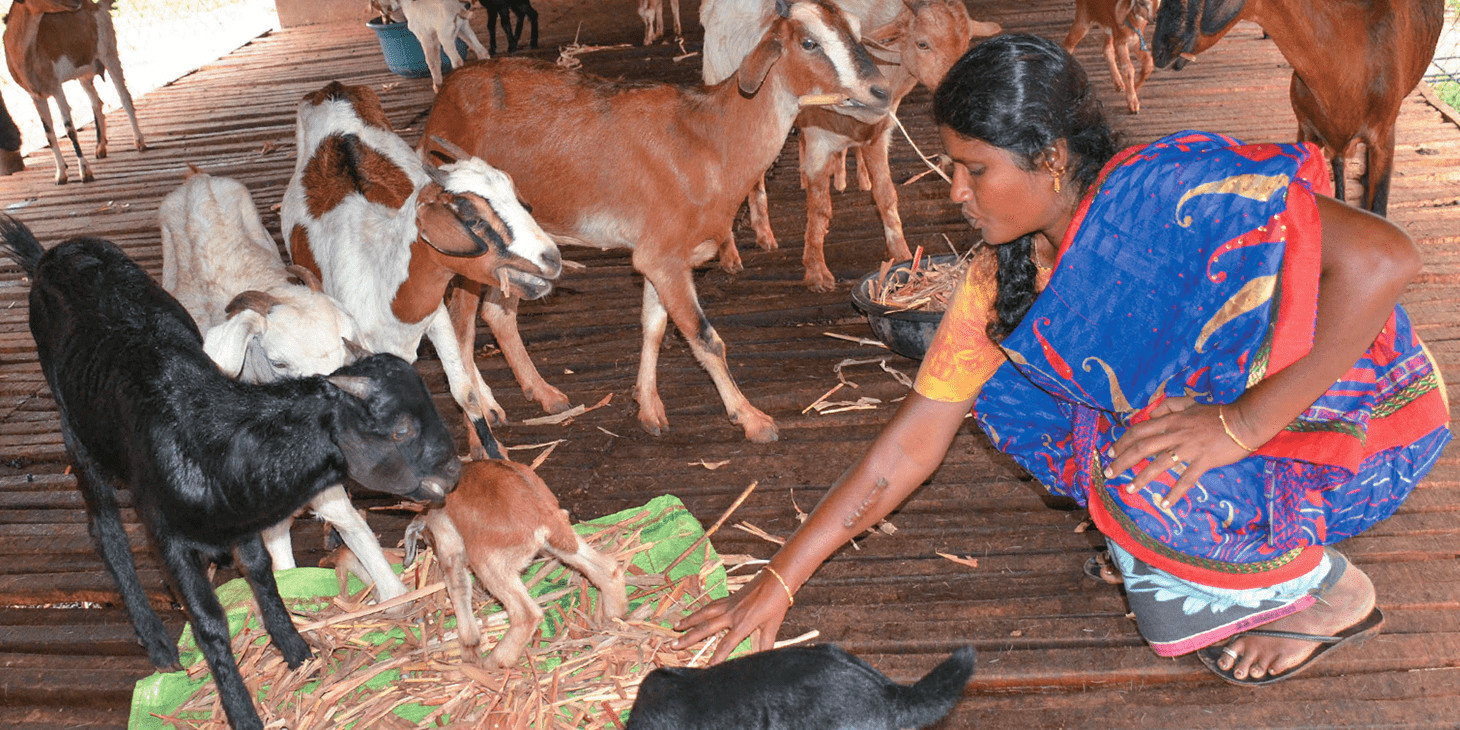
Strengthen the capacities and autonomy of women in the agricultural sector to ensure their financial independence and food security.
In the rural areas of the state of Tamil Nadu (southern India), climate change (drought, soil degradation) and the region's economic isolation are leading to a precarious situation for the population, particularly women, who are poorly qualified and discriminated against on the basis of their gender. With its partner, the NGO Gramium, which works as closely as possible to the needs of the community, the association Objectif France-Inde (OFI) is supporting the creation of self-help groups (JLG: Joint Liability Groups) for women living below the poverty line. Through this project, OFI and Gramium will be building the capacity and autonomy of women farmers in the region to ensure their financial independence by obtaining government-subsidised micro-credits, as well as their personal and social emancipation and food security. Already implemented with the NGO SEVAI, this project is a duplication of a programme that has been running for over 20 years for rural populations (175,000 women lifted out of poverty).
Rejoué
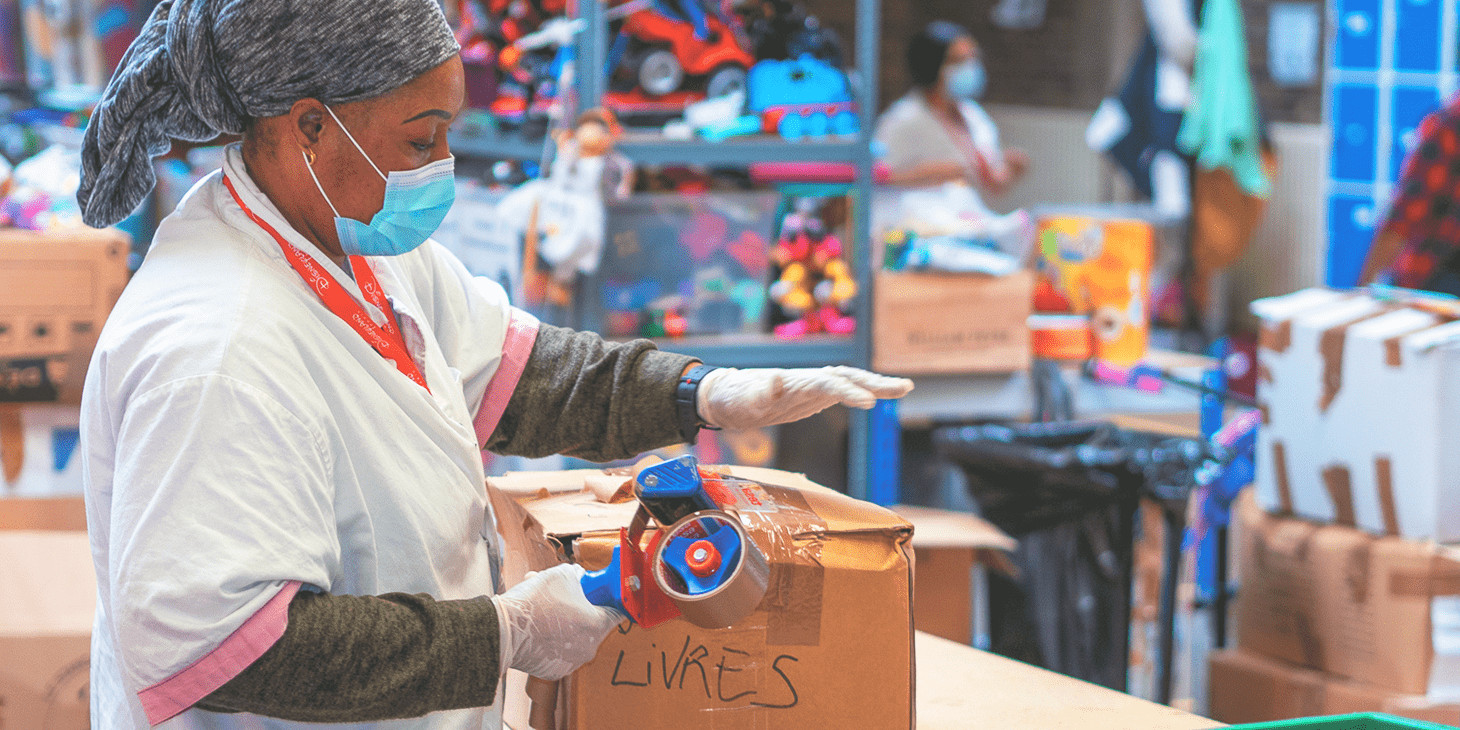
Promoting the social and professional integration of women who have missed out on employment by training them in toy recycling.
Rejoué was set up in 2010 as a centre for the integration and recycling of second-hand toys. It helps to integrate people who are far from employment, over 60% of whom are women, by reusing toys in its workshop in Vitry-sur-Seine (94) and reselling them at fair prices in 2 shops in the Paris region to individuals and children's professionals. Since 1 January 2022, the AGEC law (anti-waste for a circular economy) has been in force, creating an EPR (Extended Producer Responsibility) channel for toys. The main aims of this new sector are to develop the re-use of toys, new collection channels and recycling. In line with this law and to better meet the challenges of the sector, Rejoué wants to change scale by increasing its storage capacity, its logistics skills and by developing its sales. These developments will benefit employees on social integration schemes, giving them greater employability and financial independence. Its action plan for the next 3 years is to integrate the discovery of digital and logistics professions into the activities of the integration project, and also to secure the careers of the employees by setting up a sustainable workshop that will optimise the activity to collect and resell more toys.
Univers-Sel
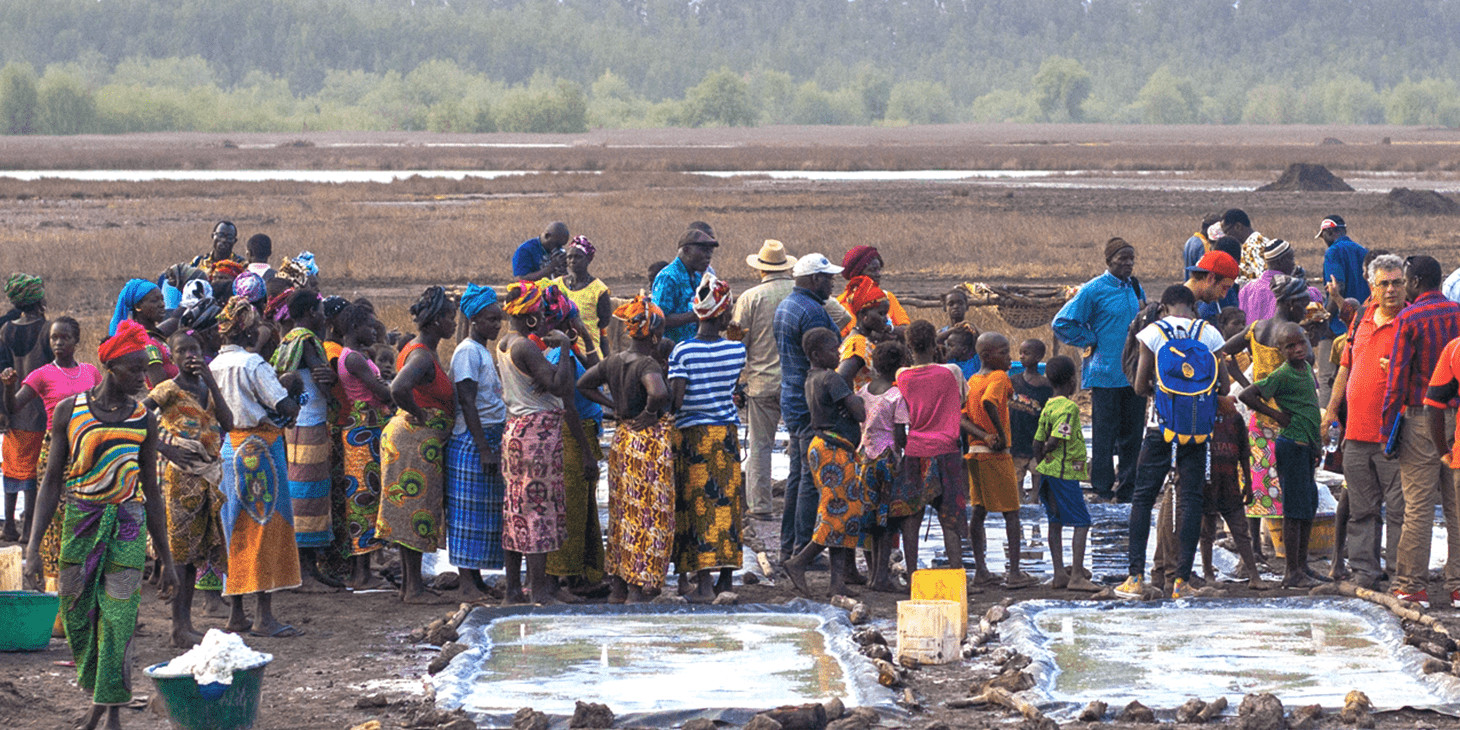
Training women salt producers in solar salt farming, a more environmentally-friendly technique
In Guinea-Bissau, the women who produce salt scrape the salty earth and then filter it with water to obtain "brine", water saturated with salt, which they then boil over a fire of mangrove wood to harvest the salt. This process uses up a lot of wood and is a source of massive deforestation: it takes 3 tonnes of wood to produce 1 tonne of salt. This technique is also harmful to the health of the women who inhale the fumes all day long. In response, the Univers-Sel association, working with local producers and salt workers from Guérande, has developed a more environmentally-friendly production technique: solar salt farming. The brine is poured onto plastic tarpaulins and the action of the wind and sun causes the water to evaporate and the salt to crystallise. Univers-Sel has been deploying this technique in Guinea-Bissau, in the Oio region, since 2016. During the first 2 phases of 3 years each, supported by the foundation, 48 women producers from 38 villages were trained in solar salt production, and passed on their skills to 1,500 women. In 2019, this project was awarded the Gender and Climate Solutions prize by WECF. During this new 3-year phase (2023-2025), Univers-Sel hopes to provide more in-depth support for the women producers who have already been trained, disseminate the technique to other villages, strengthen the tarpaulin sales network and develop the marketing of salt.
Projects supported in 2023 by the "Women & Environment" action program.
Discover the actions carried out thanks to your support.
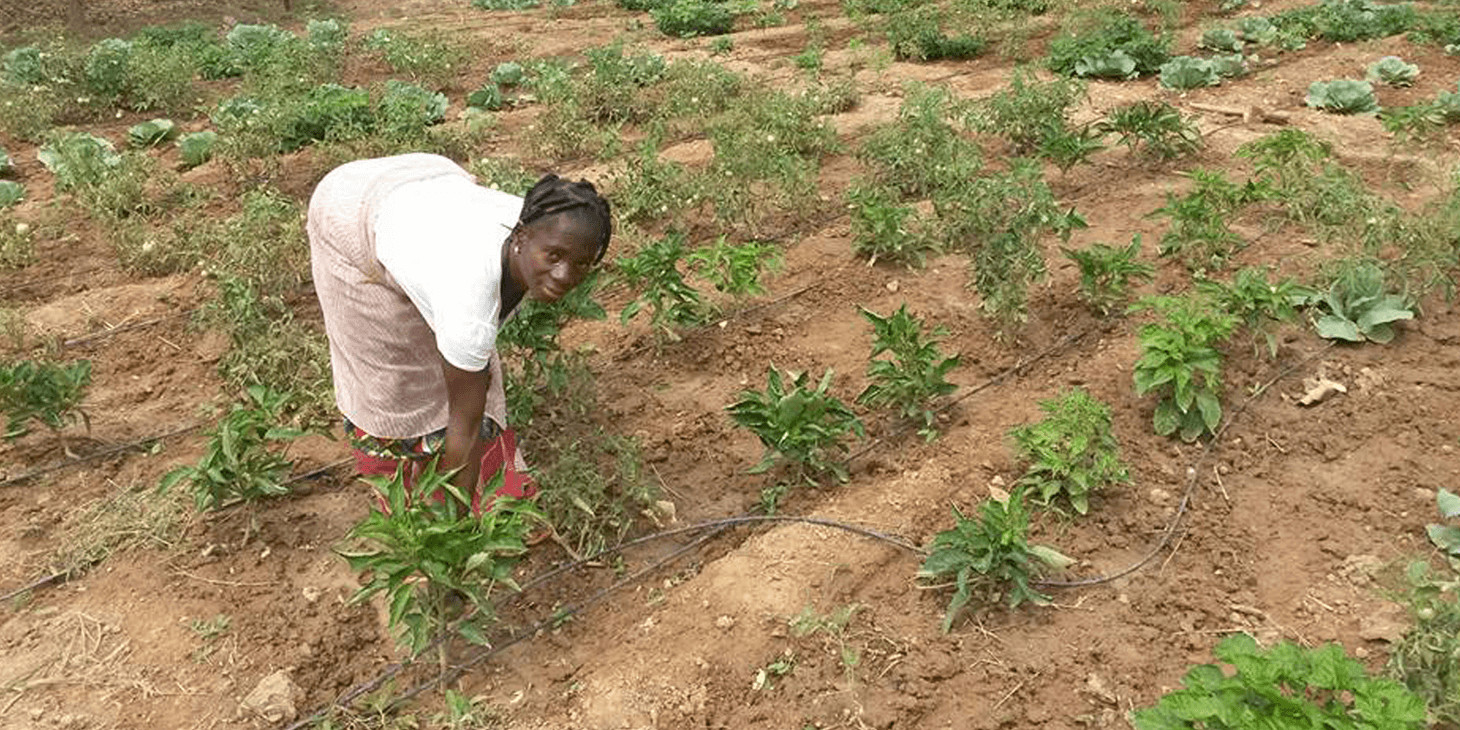
LAAFI France
Training vulnerable women in permaculture and agroecology to develop income-generating activities
- 20 vulnerable women are trained in permaculture and agroecology
- A 1.5 hectare natural area is protected thanks to sustainable agricultural practices that respect the ecosystem
- 20 teachers are made aware of and trained in the concepts of nutrition and a balanced diet
- 3 schools are supplied with quality meals, made from fresh, local and organic vegetables
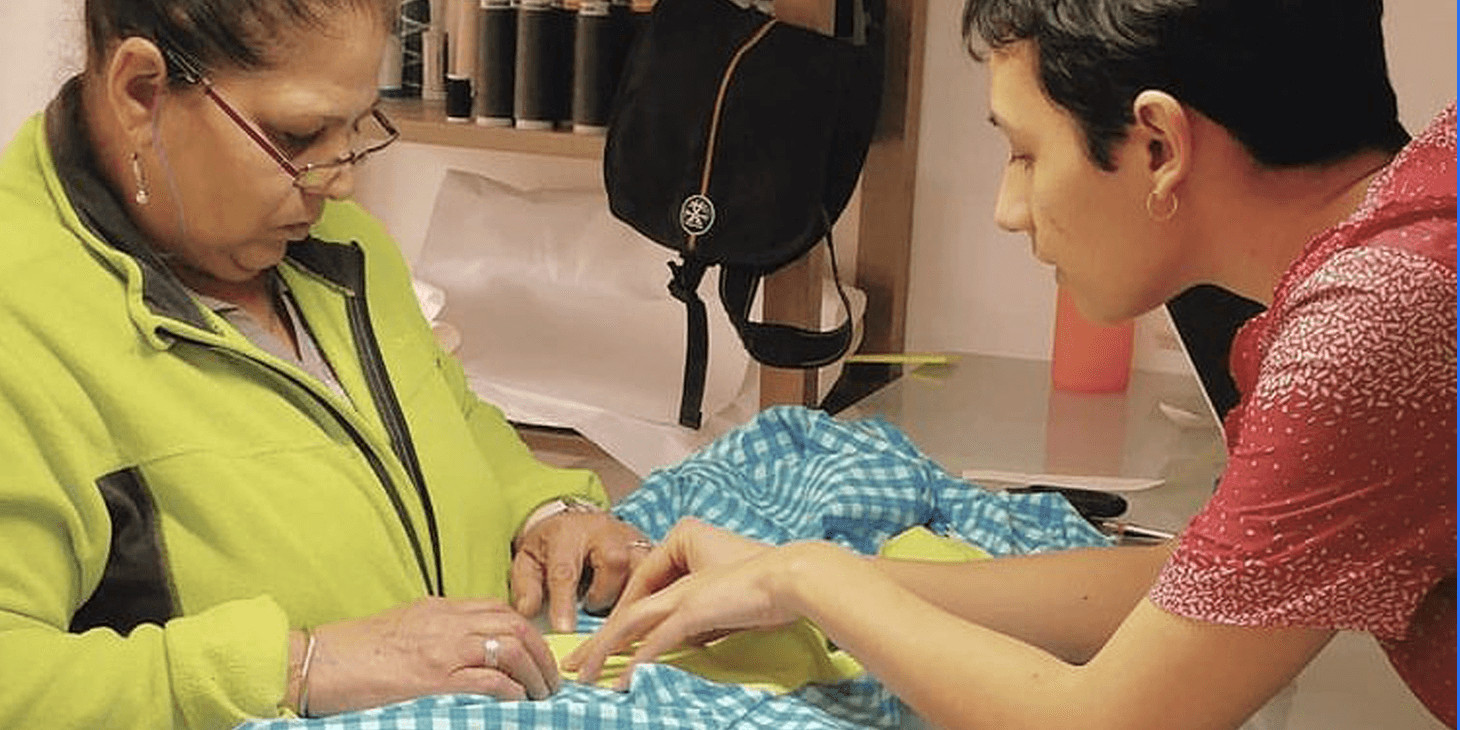
Emmaüs France
Getting vulnerable women back to work by recycling and transforming textiles
- 9 structures in the Emmaus movement have embarked on this new activity, each creating a brand, a production workshop and a first collection
- Inspired by the collective, new upcycling activities have spontaneously joined the movement (the Emmaüs Chambéry community, the Emmaüs Agir association, the Emmaüs Saint-Omer community, among others), enabling more vulnerable women to be supported.

GERES
Supporting the creation of a sustainable kiln industry for women
- Development of women’s entrepreneurship, in particular by setting up a sales network for FaranEco labelled ovens, supported by 13 women from vulnerable neighbourhoods in Greater Casablanca.
- 4 of these women have sold a FaranEco oven or stove and have received commissions (which improve their income).

GRET
Improving the living conditions and economic empowerment of 240 ethnic minority women while ensuring sustainable forest environment
- Creation of an inter-village consultation group to coordinate forest protection and livelihood support activities in the nature reserve
- Diversification of women’s income through responsible tourism and agriculture.

EKO !
Training refugee women on simple and environmentally friendly technical solutions
- 10 women found a job in the rehabilitation and preservation of the biodiversity of the Camayenne botanical garden
- 35 women were made aware of the preservation of biodiversity and forests

Médecins du Monde France
Training women market gardeners in agroecological practices that are more respectful of the environment and less harmful to their health.
- 28 organisers, representatives of market gardeners’ associations, were trained to run a field school and introduce sustainable vegetable production
- In turn, the 28 facilitators provided training to 200 market gardeners benefiting from the programme.
- 2 health centres are currently being rehabilitated to provide medical equipment and medicines to treat patients.

Forestever
Contribute to improving the agricultural plots of indigenous women by planting fruit trees, palm trees and medicinal plants.
- 175 women and children have benefited from the project. 110 of them have taken part in discussion groups on gender and the environment.
- 3 nurseries were renovated, and 3 seed collection expeditions were organized by the women.
- Each beneficiary planted 150 trees.

Elevage Sans Frontières
Empower women goat and sheep breeders by strengthening their skills and supporting their grouping into cooperatives.
- 148 women have been trained as breeders and will receive a goat or sheep.
- 12 women learned the basics of veterinary care
- A cooperative for the sale of products has been created.

Gbobètô
Develop an ecological, healthy and economical alternative to charcoal by involving women throughout the chain (manufacturers, consumers, retailers).
- 2,000 biofuel briquettes are produced every day
- 3 groups of women farmers have been supported in supplying the agricultural raw materials needed to make briquettes.
- 6 women potters have been trained in the production of the new cookstove

Rural Development
Promoting the professional integration of vulnerable women through the production and distribution of raw and processed fruit.
- 8 women were supported in their integration activities
- 3 tons of fruit was recycled

WECF France
Supporting women from disadvantaged neighbourhoods in organizing their waste recycling associations
- 4 recycling associations, run by women, are supported in their formalisation.
- Women recyclers from the 4 associations are trained to defend their rights and see their place in the recycling value chain strengthened.

SOL, Réseau CIVAM et FADEAR
Supporting women farmers committed to agro-ecology
- 7 women were supported as part of a farmer mentoring programme
- 22 women farmers took part in single-sex training courses and working groups to discuss their difficulties and share best practices.
- A number of awareness-raising events on the installation of women in agriculture have been organised for both men and women farmers.
- An action-research project on the role of women in the agro-ecological transition is currently being structured.













